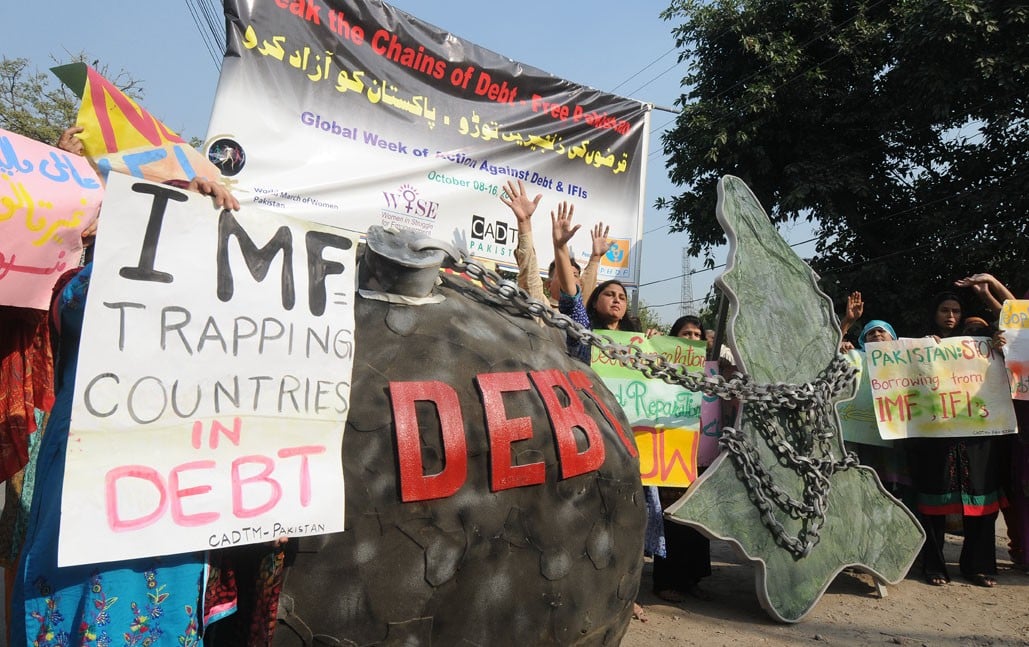
The government must act properly to avoid a post-IMF like situation in Egypt

The federal budget for fiscal year 2019-20 is out with a very ambitious target of tax collection through various measures. Subsidies on electricity and gas have been withdrawn for various slabs. Prices of many daily essential items are up to get more revenue in the form of General Sales Tax (GST) and Value Added Tax (VAT). The salaried class has been targeted through heavy taxes.
The federal government of Pakistan Tehreek-i-Insaf (PTI) has been negotiating with the International Monitory Fund (IMF) for a bailout package for the past few months. Finally, both sides agreed on a package of $6b package for three years coming with several conditions and prerequisites to be implemented in the recently passed budget. The agreement with the IMF would be finally approved by the board by the end of June.
The tax proposals also indicate that they are meant to meet the pre-conditions of the IMF bailout package. Similarly, the planned increase in the energy prices also is part of the IMF package.
Pakistan will have to seriously implement economic reforms and broaden its tax net as per the IMF demands to ensure return of the borrowed money. That is why this budget reflects measures to reduce non-development expenses and increase exports, discourage imports to stabilise the worsening situation of the economy.
The IMF has also urged Pakistan to ensure that open market determines the value of Pak rupee vis-à-vis the American dollar. Recently inducted advisor to prime minister on finance, Dr Abdul Hafeez Shaikh, has already indicated these changes as pre-requisites to get the IMF bailout package.
All the austerity measures, i.e, withdrawing subsidies, managing debt servicing, imposing taxes, and not increasing the defence budget are linked to the IMF’s suggested measures to bring the country’s economy on the right track.
Opposition parties have termed this budget as dictated by the IMF and have threatened to not let it pass from the parliament where the government has a thin majority. The joint opposition said the federal budget will result in high inflation, making the life of ordinary people more difficult and miserable.
Following the budget, reportedly, Pakistan also seeks permission of the IMF for converting $5 billion deposits obtained from friendly countries -- Saudi Arabia and United Arab Emirates -- for utilising it as budgetary support in the next fiscal year 2019-20 to show reduction in deficit.
In view of economic challenges, the IMF also allows Pakistan to utilise certain portions of its bailout package for budgetary support.
Dr Pervez Tahir, well-known economist, believes the federal budget for the fiscal year 2019-20 reflects the measures which the IMF people have mentioned to Pakistan. "Tax target, growth rate, inflation, debt-servicing are the things which are discussed at the staff level before reaching an agreement," he says, adding, "we should do all these things as per agreement."
Also read: Editorial
He agrees though that it needs courage to take difficult steps. He says withdrawal of subsidies will not have an impact on the poor as a majority of people using less than 300 electricity units will still pay a low price. "Similarly, gas prices have been increased for higher slabs."
Tahir says debt-servicing is the biggest expense. "If we do not take hard decisions debt would continue to be multiplied (because of interest) and the situation would become more difficult in the coming years."
In taking these hard decisions, he says, "we have to compromise on many areas like the development budget." He fears that if the government mismanages it will not be very different from the post-IMF situation in Egypt.